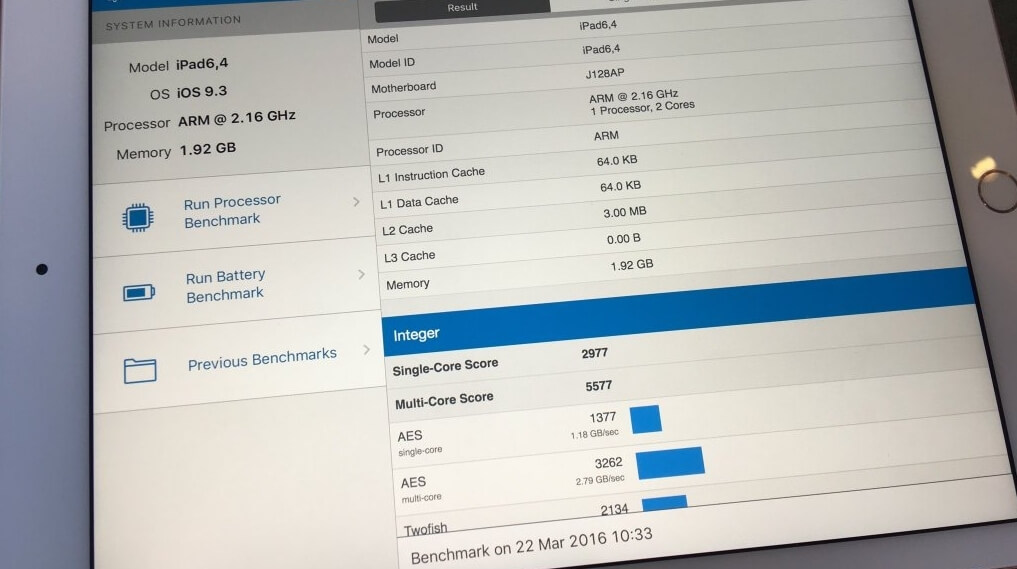Apple yesterday announced the second member of the iPad Pro family. The smaller 9.7-inch iPad Pro adopts much of the same hardware used in its 12.9-inch bigger brother including Apple's own 64-bit A9X SoC. As such, the natural conclusion is that both tablets should perform identically but that doesn't appear to be the case.
TechCrunch Editor-in-Chief Matthew Panzarino, who happens to already have a 9.7-inch iPad Pro review sample, recently ran a Geekbench test on Apple's latest tablet. The results reveal the A9X in the smaller iPad is clocked slightly slower than the chip inside the bigger tablet - 2.16GHz versus 2.24GHz, respectively.
Granted, that's not a huge difference in clock speed but it is technically slower.

What may actually have a pretty substantial impact on performance, however, is the amount of RAM the 9.7-incher ships with.
If you recall, the larger iPad Pro comes equipped with 4GB of system memory. According to Geekbench, the newcomer has just half that amount at 2GB. Apple is known for shipping products with smaller amounts of RAM compared to the competition (a luxury afforded by designing both hardware and software in-house) but for a machine that they're practically billing as a PC replacement, 2GB may be pushing it.
Furthermore, on Apple's website, the company says the A9X in the 9.7-inch iPad Pro is 2.4x faster on the CPU side and 4.3x faster on the graphics side versus the A7. The same chip in the 12.9-inch model, meanwhile, is said to be 2.5x and 5x faster, respectively.
So, why would Apple outfit the smaller iPad Pro with a lower-clocked SoC and less RAM? If I had to guess, there are two reasons.
First, the display on the 9.7-inch model features a resolution of 2,048 x 1,536, which is far lower than the 2,732 x 2,048 resolution of the larger model. Fewer pixels to push means less power is required. What's more, the battery inside the newer iPad is certainly smaller than what's included in the 12.9-inch slate. With less juice on tap, Apple is likely looking to conserve as much power as possible.
Whether or not the slower clock speed and less RAM will significantly impact real-world performance, however, remains to be seen.
Screenshot courtesy Matthew Panzarino
